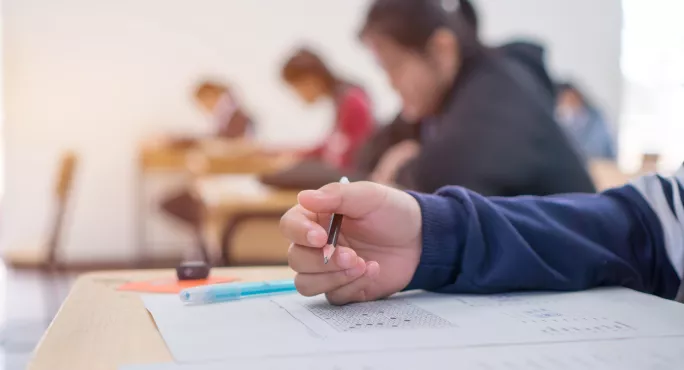Calculating grades for GCSE and A-level students unable to sit their exams this summer is a “big burden” on teachers, the schools minister has said.
Addressing the Commons Education Select Committee this morning, Nick Gibb said there was a “big sort of onus” on teachers to be “fair and accurate” when assigning grades to students whose exams have been disrupted by the coronavirus criris.
He added that he believes staff will be “as fair as they possibly can be within human frailty” when calculating grades.
Ofqual: School GCSE records given more weight on grades
Coronavirus: Shortened autumn GCSEs discussed by boards
GCSEs: AQA will not pay or furlough examiners
Asked how confident he was that the system for calculating grades would not adversely affect disadvantaged groups and black, Asian and minority ethnic groups, Mr Gibb said: “A great deal of deliberation was undertaken by Ofqual on this.
Coronavirus: Awarding fair GCSE and A-level grades
“I think the answer has been that you can actually make it more unfair if some of the solutions proposed were introduced.
“Ultimately, the headteacher of the school will sign off if he or she believes that the grades - the calculated grades, the estimated grades - that have been given to the exam boards are fair and right.
“And that means there is a big burden - a big sort of onus on teachers to be as fair and accurate as they possibly can be when they are assessing those grades.
“I believe that, given the professionalism of the teaching staff, they will be as fair as they possibly can be within human frailty.”
Asked which solutions were looked at for protecting against unconscious bias in the education system, Mr Gibb said national data could be used, and different rank orders applied - but this is “so difficult to do”.




